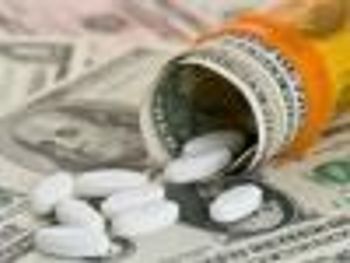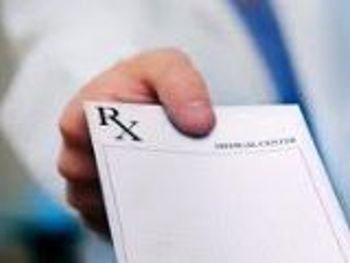
Currently, fitness data gathered and stored by wearable fitness trackers, can potentially be sold to third parties, like employers, insurance providers, and other companies, without the users' knowledge or consent.

Currently, fitness data gathered and stored by wearable fitness trackers, can potentially be sold to third parties, like employers, insurance providers, and other companies, without the users' knowledge or consent.

Study shows large-scale patient data analytics can help with early interventions for patients at risk of metabolic syndrome and reduce their medical costs.

A new initiative is focusing on increasing access to healthcare through innovative use of technology including telemedicine and health information exchange to deliver care.

After a decade of experimentation with reforms that give health providers financial incentives to improve performance, relatively little is known about how to best execute such strategies or judge their success.

A study of one of the first, largest, and longest-running multi-payer patient-centered medical home medical pilots found little improvement in quality and no reduction in use of services or total costs.

Global spending on medicines is expected to hit the $1 trillion threshold in 2014, driven by greater access to medicines by the world's rapidly expanding middle class.

One in 10 of the world's population will have diabetes by 2035, as the number of people with the disease is expected to grow from 385 million today to 592 million people by 2035.

Insurers and pharmacy benefits managers rate the quality of patient outcomes as their primary concern. They are actively looking for ways to cut the cost of those outcomes without impacting quality.

While a lot of attention has been focused on the hot market for biotech IPOs, follow-on offerings by U.S. biotech companies are also sizzling. The numbers, though, may overstate the case.

The FDA is proposing to lower the bar for drugmakers seeking approval of new treatments for Alzheimer's disease as drugmakers have been unable to gain approval for new therapies even as incidence of the disease continues to rise.

Discovery and research deals led life sciences partnering activity in 2012 as pharmaceutical companies looked to partner with biotechs that have novel platform technologies.

During the past 20 years, pharmaceutical companies paid more than $30 billion in settlements with federal and state governments over misdeeds, according to a new report.

Two deals highlight the use of information technologies to address today's health care problems.

While mobile devices make it easier for doctors and health care organizations, it places a higher priority on securing networks containing medical information from malicious attacks.

Public market deals slow to a trickle during August thanks to the volatile market and political fighting.

Increased exits spur more financings.

Outpatient electronic prescribing systems don't cut out common mistakes.

Boston area life sciences firms raised almost $90 million in early stage rounds.

As a recent spate of disappointing initial public offerings show, diminishing appetite for risk is forcing small biopharma companies to slash their IPO prices and sharply increase the number of shares offered in order to get the deals done.

Two billion-dollar acquisitions boosted shares and shined the spotlight on the biotech sector last week, as Sanofi finally sealed the deal with Genzyme and Aveo struck a major cancer drug licensing deal with Japan's Astellas Pharma.

Nine life sciences companies have made their U.S. market debut in the past two weeks, ranging from digital health plays to biotech firms, albeit with mixed results. Here's how this week's crop fared.

The healthcare sector, and biotech stocks in particular, surged last week as life-sciences companies embarked on a $6.7 billion shopping spree during the waning days before Christmas.

It was a lackluster week for biotech stocks, with Celgene dragging on the sector. But a flurry of takeover bids, and rumors of offers to come, boosted stocks elsewhere in the healthcare sector.

Two leading medical-device makers announced separate deals to acquire start-ups to bolster their cardiovascular units, while biotech IPOs struggled in a sign that investor enthusiasm for high-risk companies remains anemic.

Two biotech companies failed to price their initial public offerings last week as Detroit automaker General Motors stole the headlines with what could be a record-setting $20 billion IPO.

Investors focused on upcoming initial public offerings from biotech companies this week, including a proposed $2.8 billion bid that if completed would be the largest biotech IPO ever.

Biotech stocks had a quite week as gainers offset decliners, despite a big surge in most major market indexes. The week's biggest deals in the sector signified the increasing importance of the Chinese healthcare market for investors.

October closed out with almost $1 billion in biotech IPOs, $3 billion in merger-and-acquisition activity, and potentially $3 billion in partnering deals. And an FDA approval sent at least one stock on a wild ride.

Two big merger-and-acquisition deals in the medical-device sector, and a couple of lackluster biotech IPOs, were among the highlights of an upbeat week for healthcare stocks.

Pharmaceutical companies continued their recent biotechnology buying binge in the hunt for innovation, while mid-cap biotech stocks stole the limelight on Wall Street.

Published: December 20th 2010 | Updated:

Published: November 22nd 2010 | Updated:

Published: July 23rd 2013 | Updated:

Published: September 14th 2010 | Updated:

Published: February 14th 2011 | Updated:

Published: October 18th 2010 | Updated: